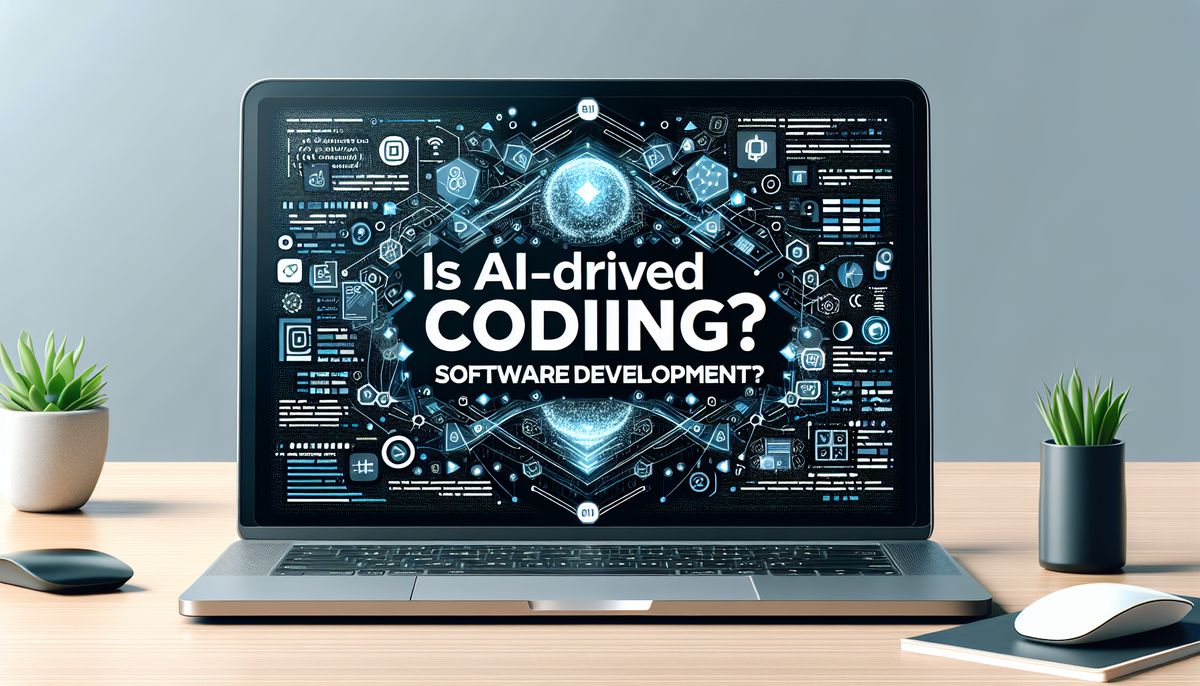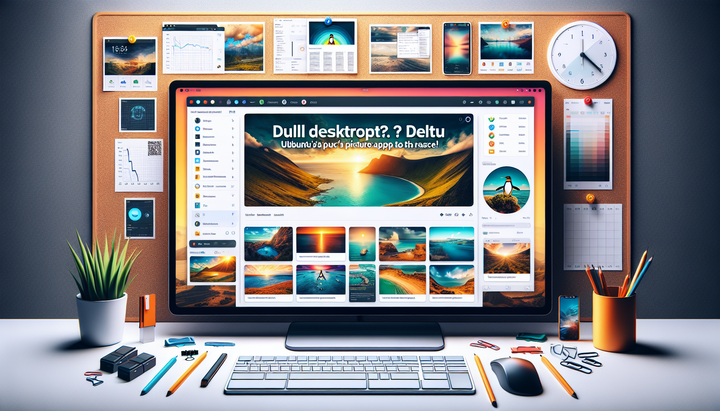Is AI-Driven Coding Transforming Software Development?

The Rise of AI-Driven Coding
Over the past few years, the programming landscape has shifted dramatically. One of the most significant drivers is artificial intelligence. Today, developers aren’t just writing code—they’re collaborating with AI systems that help optimize workflows, debug code, and even suggest innovative solutions. As we approach 2025, the question is: Is the future of software development being redefined by AI-driven coding?
Emerging Programming Trends
The software development industry is evolving rapidly. Developers are not only exploring new programming languages and frameworks, but they are also integrating AI into more aspects of the development process. Here are the key trends shaping the future:
- AI-Enhanced Development: Modern integrated development environments (IDEs) are increasingly embedding AI capabilities to assist in code completion, error detection, and code optimization.
- New Frameworks and Libraries: Frameworks are emerging to support modern web and mobile development, emphasizing speed, scalability, and ease of integration with AI services.
- Low-Code/No-Code Platforms: Businesses and even non-technical users are now turning to low-code and no-code platforms, which reduce the barrier to entry and accelerate development cycles.
- Cloud-Native Solutions: With the proliferation of cloud computing, tools and platforms are being optimized for the cloud, enabling seamless deployment and scaling of applications.
- Cybersecurity Integration: As development cycles speed up, so do the risks. Cybersecurity is now being integrated into the development pipeline to mitigate vulnerabilities early on.
Understanding the AI-Driven Shift
Traditional software development required deep knowledge of syntax, debugging, and system architecture. However, AI-driven coding introduces a paradigm where machine learning models analyze vast quantities of code to understand best practices, potential errors, and optimization techniques. This evolution brings numerous benefits:
- Enhanced Productivity: Developers can focus on problem-solving and creative aspects, leaving more repetitive tasks to intelligent systems.
- Accelerated Learning: Novice programmers receive real-time feedback and suggestions, reducing the learning curve dramatically.
- Improved Code Quality: With AI constantly monitoring code quality, bugs and inefficiencies are caught and corrected early in the development process.
New Frameworks and Their Impact
Alongside AI-driven approaches, developers are witnessing the birth of new frameworks intended to harness the power of modern hardware and cloud infrastructure. For instance, frameworks built on reactive programming models provide a more efficient and scalable approach to managing asynchronous tasks. Furthermore, these frameworks often come with built-in support for AI-oriented libraries, which allow for smoother integration of machine learning models into applications.
Tackling Developer Challenges
As developers adopt these innovative tools and frameworks, they also face a new set of challenges. Some common hurdles include:
- Integration with Legacy Systems: Many enterprises rely on legacy systems that are not designed to work with modern AI tools, complicating the transition process.
- Skill Gap and Training: The rapid evolution in technology means developers must continuously upgrade their skills. Organizations are investing in upskilling programs to bridge this knowledge gap.
- Data Security and Privacy: With increased reliance on cloud-based AI services, ensuring data security and adhering to privacy regulations is paramount.
- Complexity Management: As systems become more intricate, maintaining clarity and simplicity in code becomes a significant challenge. Tools that provide automated documentation and live analytics are in high demand.
Low-Code and No-Code Innovations
The rise of low-code and no-code platforms is revolutionizing software development. These platforms are designed for rapid application development, enabling even those with minimal coding knowledge to create sophisticated applications. They help bridge the gap between technical and non-technical teams by:
- Simplifying the development process with user-friendly interfaces.
- Facilitating collaboration across various departments.
- Enabling rapid prototyping and iterative development.
However, while low-code/no-code platforms promise speed and simplicity, they also raise important questions about scalability and security which must be addressed as these platforms gain traction.
How AI is Enhancing the Developer Experience
Beyond code generation and debugging, AI is changing the way developers approach software design. Some noteworthy advancements include:
- Predictive Analytics: Tools that forecast potential issues based on historical data help in preempting bugs and inefficiencies.
- Automated Testing: AI-driven testing frameworks reduce manual effort by automatically generating test cases and simulating user interactions.
- Smart Refactoring: As codebases grow, maintaining them becomes a challenge. AI tools now offer refactoring suggestions to optimize code structure without compromising functionality.
Expert Insights and Industry Research
Industry experts agree that the integration of AI into coding practices is only the beginning. Pioneers in the field suggest that as AI capabilities mature, the entire lifecycle of software development—from design and coding to testing and deployment—will be transformed. Some experts believe that in the near future, AI will take on more complex tasks traditionally reserved for human developers.
Recent research indicates that companies investing in AI-driven tools have seen a significant drop in development time and an increase in code quality. Furthermore, by automating mundane tasks, experts argue that developers have more room to experiment, innovate, and ultimately drive technological progress.
Real-World Applications and Case Studies
The theoretical benefits of AI in software development are increasingly being validated in real-world applications. Consider the following case studies:
- Case Study 1: A major fintech company integrated an AI-driven code assistant into its development pipeline. Within six months, they reported a 30% reduction in bugs and a 25% faster time-to-market for new features.
- Case Study 2: A startup leveraged low-code platforms combined with AI-powered analytics to rapidly prototype and iterate on their application. This approach not only cut costs significantly but also allowed them to secure additional funding due to a faster development cycle.
- Case Study 3: In the health care sector, a team used AI-enhanced frameworks to develop secure, scalable applications that meet strict regulatory standards, showcasing the versatility and compliance benefits of modern tools.
Future Implications for Software Development
Looking ahead, the trend towards AI-driven coding and the integration of modern development frameworks is set to continue. Here are some predictions for the near future:
- Increased AI Adoption: As AI tools become more accessible, adoption will grow across organizations of all sizes, from startups to multinational enterprises.
- Evolution of IDEs: Integrated development environments will evolve into intelligent partners, offering real-time suggestions, predictive coding, and even automated documentation generation.
- Greater Emphasis on Cybersecurity: With cyber threats evolving, the integration of automated security assessments within the development process will become a standard practice.
- Continued Growth of Low-Code Platforms: These platforms will mature and offer more sophisticated capabilities, making them a staple in many development workflows.
- Collaboration Between Humans and Machines: The ultimate vision is a harmonious relationship where human creativity is enhanced by the speed, accuracy, and scalability of AI tools.
Practical Tips for Developers
As you navigate these emerging trends, consider the following practical tips to stay ahead of the curve:
- Stay Updated: Follow the latest research, attend webinars, and participate in forums to keep abreast of new developments in AI and software frameworks.
- Invest in Training: Whether through online courses or bootcamps, continuous learning is vital. Embrace both foundational programming concepts and advanced AI applications.
- Experiment and Iterate: Don’t be afraid to experiment with new tools. Use low-code platforms to test ideas rapidly and evaluate the impact of AI enhancements in your workflows.
- Focus on Security: As you integrate innovative tools, maintain a rigorous approach to cybersecurity. Opt for frameworks and platforms that prioritize data protection and compliance.
- Collaborate and Share Knowledge: Build networks, share experiences, and contribute to open-source projects. Collective insight can accelerate individual and industry-wide advancement.
Conclusion: The Future is Collaborative and Intelligent
The evolution of software development is being shaped by the dual forces of AI innovation and emerging development frameworks. With AI-driven coding, developers are empowered to tackle complex tasks with newfound efficiency, creativity, and security. Meanwhile, frameworks that prioritize scalability, low-code innovations, and cloud-native solutions are breaking down barriers to entry and fostering an inclusive culture of rapid development.
Looking towards the future, it is clear that the technology landscape will continue to evolve. The blend of human insight with machine intelligence promises to open up realms of possibility—transforming not just how we write code, but how we conceive, develop, and deploy applications on a global scale.
As we navigate these transformative times, the key takeaway for developers is simple: adapt, innovate, and collaborate. Embracing these emerging trends is not just about staying relevant; it’s about leading the charge into a new era where coding is more dynamic, integrated, and intelligent than ever before.
Whether you are an experienced software professional or a budding developer, the future holds exciting opportunities. Engage with these trends, experiment with new tools, and continually refine your skills. The era of AI-driven coding is here, and its impact on software development is only set to grow, ushering in an age of unparalleled innovation and efficiency.
In summary, the integration of AI into software development is not a fleeting trend—it is a fundamental shift in how we approach coding. As we move forward, developers who embrace these new technologies will find themselves at the forefront of innovation, shaping the industry and driving forward a future where technology and creativity work hand in hand.



Comments ()